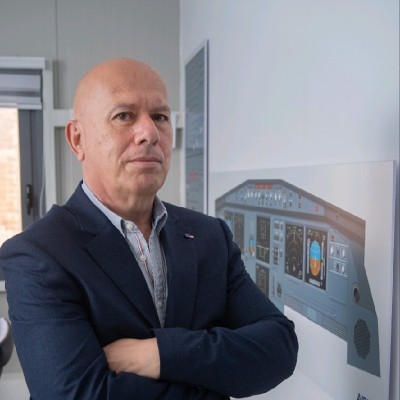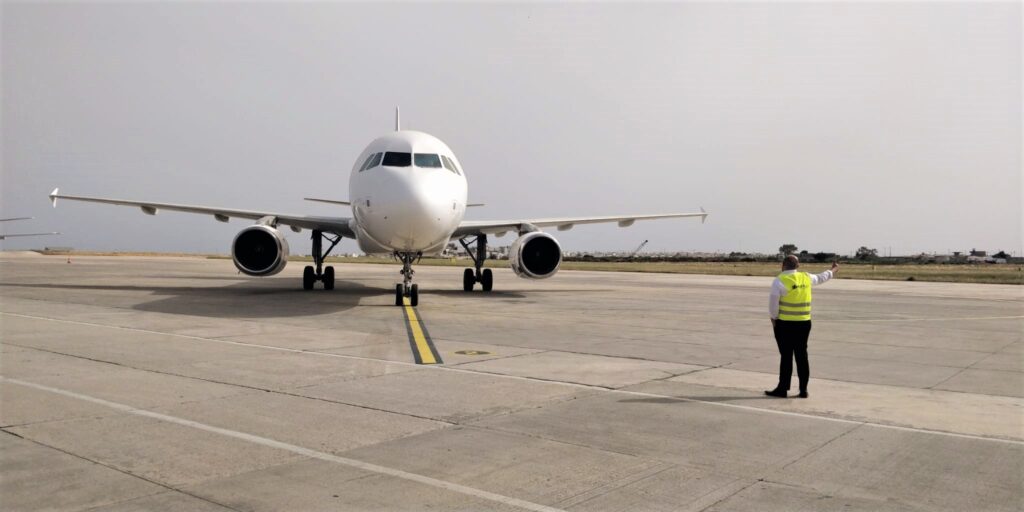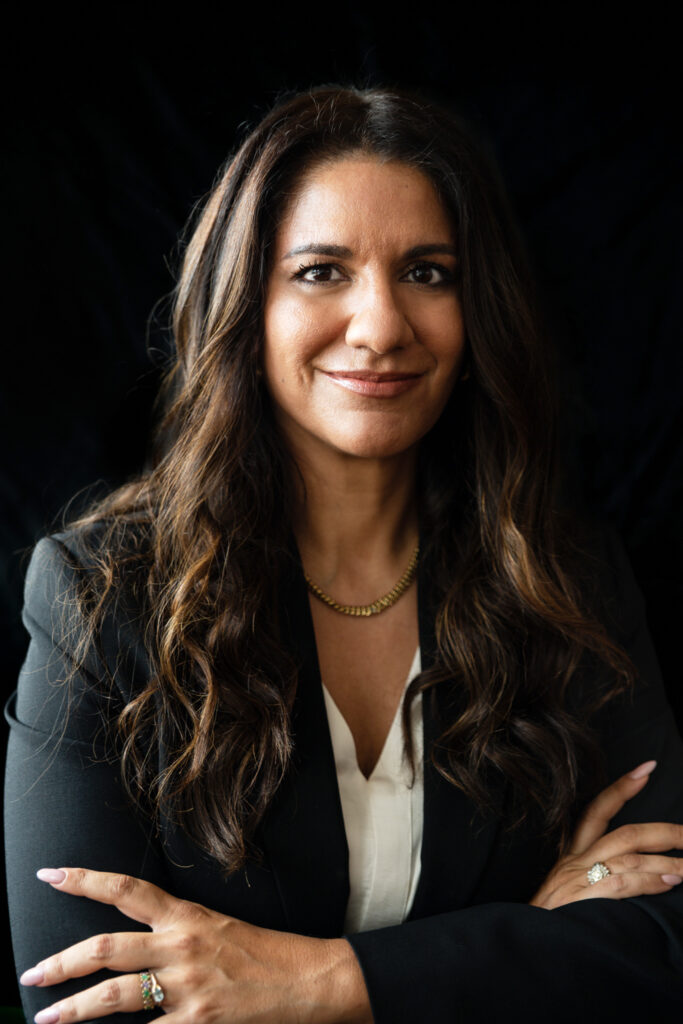We caught up with Charles who we asked to share his views regarding the post-pandemic Aviation industry and the plans for Malta.
Now that we seem to have moved on from 2 years of pandemic restrictions, what is the outlook for the industry and how is Malta and CAD looking at the years ahead?
Well, the quick and easy answer is to confirm Survival, try to Recuperate, adapt to a new reality and Restructure and who knows maybe even Prosper and make real profits. But in reality, things are not so simple. In general, the industry will remain on life support for some time. To be honest this is nothing new as the airline industry had failed to earn its cost of capital for a very long time even before the pandemic. Ironically, a few years preceding the COVID-19 pandemic signs of hope were emerging as a few airlines had finally managed to create value through new innovative ideas, the right balance and a more competitive environment. The COVID-19 pandemic however had an unprecedented impact and nothing could prepare airline management for such a drop in passengers for so many months. That plunge took air travel back to levels not seen since the 50s. For months, airlines were refunding more than they were taking in through new bookings. The problem was even more pronounced due to the fact that the full aviation chain was hit badly and unlike any previous crisis, there was no one to turn to. The complex inter-dependent factors made decisions extremely difficult for airline executives who had the daunting task of dealing with this unprecedented shutdown of the world as we knew it. Many had to resort to loans increasing their debts or depend on government bailouts (at a cost) for survival. A few just burnt cash hoping for a long awaited slot to “depart again”. Decisions on contracts for aircraft and employees were a doubled edged knife. Damned if you do, damned if you don’t, a lottery with no winning ticket. The industry was on life support and the switch was in the hands of another sector that was unwilling to discuss or adopt proper risk analysis. When we finally started to see some sort of normality and an increase in demand , we witnessed a wave of customer dissatisfaction due to cancellations and delays. Lack of crew and other personnel has led to major disruptions at a time when passenger loyalty was up for grabs. Labour issues were widespread with flights being cancelled and major supply chain disruptions even at Airbus and Boeing. Within a few weeks people forgot about Covid as if they woke up from a bad dream with extremely high expectations which were unsustainable.
If there was ever a time EVERYONE needed to stick together it is now. Debt repayments will soon kick in coupled with higher cost due to fuel costs and higher charges. Purchasing power will be drastically reduced and another wave of economic uncertainty will undoubtedly creep in. I hope to be wrong but next winter could see quite a few airlines folding or reducing capacity drastically. Airline models will need to be changed to adapt better. Airlines are especially vulnerable to external shocks beyond their control, because they have high fixed costs and mostly variable revenues and therefore they need to strengthen their resilience. They could also work to make their operations more agile and nimble—that is, they could improve their ability to reduce supply quickly and cost-effectively when demand abruptly falls, by increasing the variability in their cost base. This might find considerable resistance amongst the labour side but in the end the numbers need to add up.
Should increased cash reserves become mandatory to avoid the need for bailouts every time there is disruption? Should subsidies or “travel aid” be given to passengers rather than to airlines in future allowing the passenger to decide on the quality rather than the authorities? Passengers do hold significant buying power and they should be given freedom to choose. An airline seat remains relatively a commodity and the less distortion caused by unfair or selective distribution should be reduced if not outright eliminated. “ National carriers” shouldn’t sacrifice their business interests for the interests of their countries and should operate without unjustified support. Governments should stop distorting the aviation market and invest in better and more efficient infrastructure. The drama behind the so-called roll out and usage of the “covid passport” should be an example of how not to do things.
Without getting into controversial arguments, we also need industrial peace as we can ill afford to rock the boat at such a critical time. Unions need to enter into a phase of collaboration and not confrontation. Airlines need to give employees fair wages and the necessary care as they are the most prized asset in their “possession”. As it transpires ,with the oil prices dangerously rising internationally, airlines find themselves between a rock and a hard place ,trying to lure passengers while keeping tickets affordable and attracting enough bums on seats. The situation will probably lead to reduced capacity as increasing capacity will increase the risk in an uncertain period.
We need stability to increase demand and in turn bring back capacity around the globe. We need to rebuild confidence and to do so Governments need to signal that lessons have been learnt and they will never resort to draconian solutions in future. An objective postmortem done by the authorities is well overdue. Freedom of movement cannot be withheld: this needs to be stated unequivocally.
Dialogue should be done with active participation of all the various sectors to analyse what could be done better and hopefully provide a protocol which will make decision-making easier and less erratic and reactive. If governments and health authorities were to acknowledge possible mistakes and declare measures that will give travellers and the industry a degree of certainty it would help the overall confidence the sector needs to survive. We live in an era that needs airlines for connectivity and supplies and we all need to help in getting past the survival phase and try to transit in to recovery and eventually proper profitability. Despite being on life support the industry is still hindered by demands for greening, added taxation, better wages, better conditions and better service.
Travel restrictions need to be seen as a thing of the past with a pledge never to go back to strict restrictions on freedom of mobility.
What do you think are the next steps for the industry, assuming that we do not have new Covid restrictions kick in?
Recuperate
After survival one needs to start the healing process and if at first one finds it difficult to achieve profitability the next best thing is to control losses. The immense expense involved in operations makes it extremely difficult to create wealth at this stage. As I stated earlier on, passenger loyalty and satisfaction will remain key and a big challenge. All elements need to rise to the occasion and Airlines need the support of ANSPs, Airports and Ground handling amongst others to ensure a positive customer experience and keep enough demand to recuperate. Good strategy and clinical revenue management will be key.
The post Covid honeymoon will soon be over and negative sentiment might dampen demand in various places. Winners and losers will emerge depending on knowledge of the market and strategic policies. Those who do not adjust, risk falling behind and prolonging their recovery or even pushing them closer to the edge. A wait and see attitude is too risky. The same agility and determination shown during lockdown needs to be adopted even now. Not all governments are ready or even in a position to give state aid to struggling airlines even if they could. Convincing banks in such uncertain times will be challenging to say the least unless they see a new approach which could present a change from the more of the same attitude. Survivability must be the strategy and this might need changing the mission, and adopting new revenue streams together with effective cost cutting. The coming years should be dedicated to strong recovery and should bring together managers, unions, and employees to have one common goal. As global aviation rebuilds itself, resilience must clearly be a top priority where customer and employee satisfaction is valued. The current understaffing causing delays needs immediate attention. Although it is a well known fact that companies with lower fixed salary costs are not as profitable, not having employees and having to cancel flights is not exactly a solution. Increased use of IT solutions at airports could be one answer to rebuild passenger confidence, speed up processing times, and improve the airport experience.
Recovery will also depend on the product of the destination and different attitudes could bring about different results. Governments need to be extra careful and monitor cost at home not allowing excessive and unmerited hikes in prices. Pushing everything to unreachable levels will not help as it is a vicious circle. the last months showed people opting for staycations and certain destinations were shunned due to excessive travel restrictions.
The industry and the world in general cannot afford another major shock as things stand. One would hope that despite the new threats such as fuel costs and reduced purchasing power capacity will still be available and travel will not be constrained again. Anyone even thinking of limiting free movement of people due to the pandemic should think twice unless total annihilation is his desire. Aviation is a business of marginal profit and requires top notch skills to flourish. We cannot accept lower standards and accept that after Covid anything goes as long as we can travel.
Do you see the industry returning in the same format or will there be major changes?
Airlines are looking at significantly lower profits for years to come as a combination of uncertainty and a deepening recession is predicted to keep demand lower than initially predicted. If covid wasn’t enough of a burden the situation has gone from bad to worse with the war in the Ukraine and the cost of living spiralling across the globe.
It has been said that for many companies, COVID-19 was a crash course in agility and lessons learnt might produce a new age for air travel as customer’s attitude and demands shift. The ‘crisis induced’ mindset needs to be maintained if not even strengthened. People have already changed their ways and we will probably see much more change demanded. People might want to have an empty seat next to them; others will avoid certain regions and might even opt for “closer to home” staycations. Low cost models are seriously hindered by lack of on time performance and without airport investments will continue to be a huge stumbling block. The answers will most definitely come from the passengers who will push for what they feel is value for money. Travel will be more expensive and therefore this will drive passenger expectations to be higher. They will demand a better service and will not tolerate the erratic delays and cancellations we are witnessing. To deliver on passenger aspirations, travel companies need a deep understanding of their customers. The aspirations are constantly shifting and we could witness a new era allowing a new model to disrupt the status quo. Real-time visions will only be useful if companies can act on them quickly and take a lead. Market research has shown that customers are twice as likely to try new brands and experiences as a result of COVID-19. This is particularly important in the travel sector with its strong reliance on loyalty programs and repeat customers. Move fast—implement insights quicker. Get to know what your customers want and need without asking. In my years as a union rep I spearheaded the concept of mandatory arbitration to avoid industrial issues ending up with damaging strike action. Today more than ever I see the benefits of such a policy and encourage this sort of thinking.The coming months and years are an opportunity for aviation to rework its relationships with governments and economies worldwide, to benefit from fresh thinking and action. With technology and experience as the enablers, airlines, OEMs, lessors, financiers and investors can be the beneficiaries thus providing good and stable jobs for many.
What about Malta and CAD? What new developments do you see as highlights of the year to come?
Well, the removal of travel restrictions have obviously opened the proverbial floodgates. Tourists and events have returned and COVID cases have been very low. Investment needs to be more focused, respecting the environment and although the old needs to be preserved and we need to produce quality modern structures which will blend in with the Malta we all love. I do not believe that all development is bad but I do think that it is not focused and this type of development needs adjusting. We need to attract higher paying industries which bring over workers who demand and can afford better accommodation which in turn complements our Mediterranean legacy. The aviation cluster is one such industry and Malta has done very well in attracting substantial investment. The recent addition of Wizzair, Challenge Air Cargo and Eurowings, is further proof that Malta remains an attractive jurisdiction.
Having said that we need to focus on breaking down more silos to ensure that bureaucracy does not weaken our appeal. Decision makers need to be empowered to act quickly and this comes both from proper trading but also clear-cut policies which are understood by all levels.
| Every minute spent on a low‐value interaction eats into time that could be used for important, creative, and powerful collaborations. As long as the government continues to seek to increase aviation in Malta, it needs to effectively support the sector with what is needed. CAD will continue to support any initiative to keep our skies safe whilst assisting the companies become efficient and sustainable. I am convinced that additional taxation burdens are unnecessary and short sighted. All efforts should be made to invest in research and development to produce greener travel modes but it should not come at the expense of less travel. Regulation and taxation overload need to be avoided and the institutions need to be better equipped and prepared. I am proud of the constructive input CAD made in assisting EASA to publish guidelines for group operations. CAD was pivotal in pushing forward this agenda enabling “groups” of companies with various AOCs to benefit from common training and checking. The cost saving will be significant for big operators adding also a huge element of flexibility without lowering standards. This is the type of thinking that needs to be applied to lessen the burden on the industry. There are other areas such as All weather Ops and ETOPs that are, in my opinion, over regulated without any safety gain. CAD will continue to discuss and contribute so as to try and remove unnecessary bottlenecks and constraints on operators by active dialogue with all stakeholders. |



